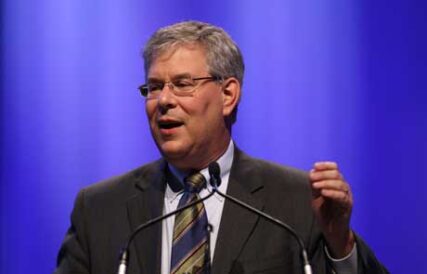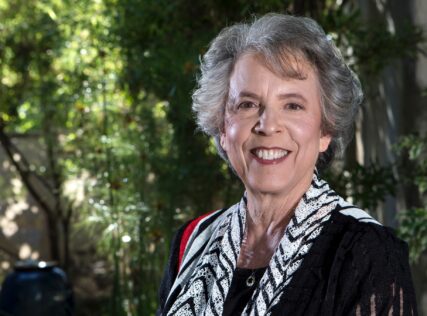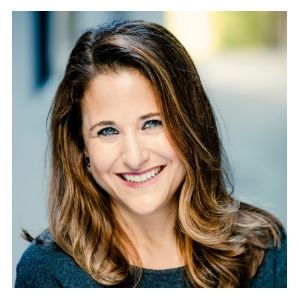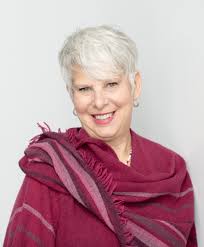I love that old song by Player: “Baby Come Back” — especially when the singer says: “I was wrong…”
It is not that easy to say. But, we do. Because we must. Click here to listen to an audio recording of several top American Jewish thought leaders owning up to what they got wrong.
Click here to listen to the audio — and let us know what you think.
In late July, the Sunday New York Times devoted an entire section to that topic – “I Was Wrong.” The editors of the New York Times invited a cadre of their op-ed writers – among them, as pictured above, Farhad Manjoo, Paul Krugman, Bret Stephens, and Gail Collins – to describe how they had been wrong about what they had once thought, and about what they had once written.
It was dazzling — an evocation of one of the themes of the High Holy Day season. “I was wrong.”
I asked several of my friends and colleagues — all of them, veteran thought leaders in the American Jewish community — to describe those moments in their careers when they were wrong, didn’t get it, or didn’t see something coming.
Some excerpts:
Rabbi Dan Freelander, one of the senior leaders of the Reform movement – who has held many positions within the Reform Jewish world, and is retired from his position as president of the World Union for Progressive Judaism, and is a popular singer of Jewish music, with Kol B’Seder.

I thought that we could hold our Reform Jewish movement/denomination together, while simultaneously changing it radically. Our congregations were strong and growing, but we knew that we had to address issues such as intermarriage, homosexuality, and the fact that in many congregations, worship was stale.
So, we invested in an aggressive Outreach program. As a movement, we celebrated Jewish spirituality, and we normalized new approaches to Reform Jewish worship. We brought in more tradition…
We hoped that we could set a new unifying canon of texts for Reform Judaism, with movement wide prayer books and new songbooks.
But, all of this was happening — precisely as the Iphone was first introduced. That seemingly small technological change induced societal change more quickly that anyone could have anticipated, and our congregations and movement were not always nimble in responding to new realities…
So, what did I — or, rather, we –get wrong?
- We underestimated how American society was coming to distrust or resent central authority and national organizations.
- The movement let personal and congregational autonomy run wild. Our diversity is not a unifying strategy.
- We didn’t take the Habad model seriously enough.
- We misjudged the influence that Renewal Judaism would have on mainstream congregations.
In retrospect, we succeeded in changing American Judaism for the better, but we were wrong to think that we could hold our denomination together as the powerhouse it once was.
Rabbi Laura Geller, one of the first woman rabbis in North America; former Hillel director, director of Los Angeles office of the American Jewish Congress, and rabbi emerita of Temple Emanuel in Beverly Hills. She, along with her late husband Richard Siegel, is the author of Getting Good at Getting Older.

I thought that:
- Women rabbis would transform American Judaism. There have been many positive changes, but we still have far to go.
- Social policy and the Constitution would protect women’s rights to control their own bodies. Instead, misogyny seems to be winning.
- Social media would create positive community.
- The Jewish community was centered in synagogues.
- Progressive Judaism would be the most appealing Jewish expression, as opposed to hareidi Judaism.
- Importing insights from other religious traditions, such as Buddhism, into Judaism would undermine Jewish integrity. In fact, those insights have enriched Jewish practice.
Rabbi Sherre Hirsch, a rabbi and author who currently serves as the Chief Innovation Officer for American Jewish University.

I never thought that I would ever hear about Jewish kids walking off Birthright tours. But, that’s what happened. In 2018, participants walked off the program to protest what they considered Birthright’s failure to adequately address the Israeli and Palestinian conflict.
What happened? We taught our children that we were slaves in Egypt. That means that we must oppose oppression. We must stand up for justice, equality, and human rights. Our attempts to make our kids committed to repairing the world have backfired. We offered monolithic approach to Israel, when we needed a more nuanced approach to Israel….
Rabbi Karyn Kedar, rabbi emerita of Congregation B’nai Joshua Beth Elohim in Deerfield, Illinois, and author

I changed my mind about officiating at intermarriages. I came to realize that the Christians among us were often dedicated to a life of values, and of supporting Jewish tradition. They were active in social action, participated in services and were raising Jewish children. The religion of origin did not determine their future commitment to the Jewish community, whereas it was often the case that a couple consisting of two Jews often disappeared. Closed doors are closed. Open doors are open.
You think it’s easy admitting publicly that you were wrong?
Guess again. Whew. For all of our participants in this recording (and for me, as well; I confess to an error), it is not easy.
It is not supposed to be easy.
Listen to the recording — and may you be inscribed in the Book of Life.






